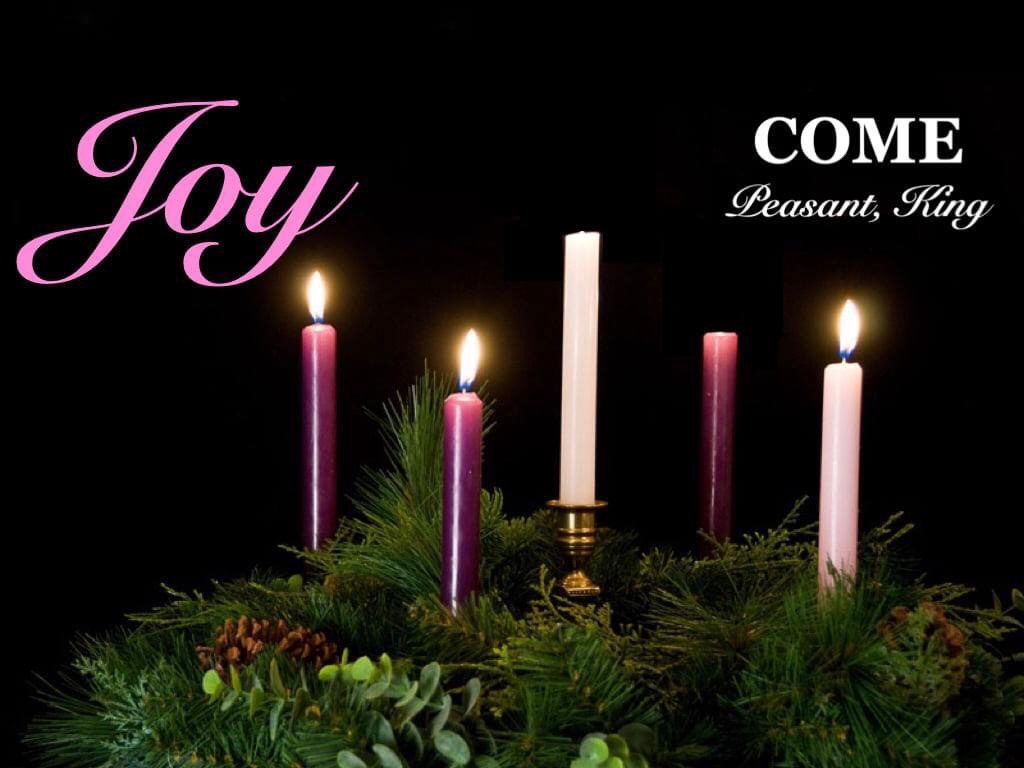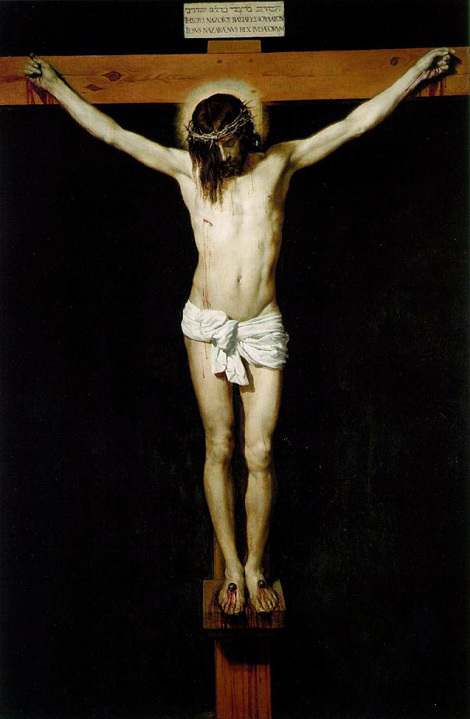
In the Roman Catholic liturgical calendar, the third Sunday in Advent is called Gaudete Sunday, after the first word in the Latin introit for this day, Gaudete in Domino semper (“Rejoice in the Lord always”).
The website “About Catholicism” explains why the Advent candle for this day is rose colored, rather than purple:
Like Lent, Advent is a penitential season, so the priest normally wears purple vestments. But on Gaudete Sunday, having passed the midpoint of Advent, the Church lightens the mood a little, and the priest may wear rose vestments.
Gaudete Sunday means that the time of waiting and preparation is nearly over–that Christmas, and more importantly, Christ, is on the way!

The introit for Sunday comes from the Vulgate of Philippians 4:4. Philippians is Paul’s most joyful letter–and quite possibly, his last. Here, for the first time, Paul anticipates dying before the Lord’s return (Phil 1:20-26)! In 1 Thessalonians, Paul’s first letter, he describes the dead in Christ as being raised to meet the Lord in the air at his second coming (1 Thes 4:15-18). But here, faced with the likelihood that he will be among those awaiting resurrection, Paul considers what that period may be like, concluding simply that he will “be with Christ” (Phil 1:23)–whatever that may mean.
In Philippians 2:1-13, Paul urges the Philippians to practice Christlike humility: “Adopt the attitude that was in Christ Jesus” (Phil 2:5). He then quotes a hymn of the earliest church, describing Jesus’ birth, life, death, resurrection, and final victory:
Though he was in the form of God,
he did not consider being equal with God something to exploit.
But he emptied himself
by taking the form of a slave
and by becoming like human beings.
When he found himself in the form of a human,
he humbled himself by becoming obedient to the point of death,
even death on a cross.
Therefore, God highly honored him
and gave him a name above all names,
so that at the name of Jesus everyone
in heaven, on earth, and under the earth might bow
and every tongue confess
that Jesus Christ is Lord, to the glory of God the Father (Phil 2:6-1 1).
In this hymn, Jesus is our representative. Being at once God and Human, he overcomes in his own Person the gap between humanity and divinity. But of course, being fully and truly human means being finite: like us, Jesus was born, lived, learned, grew, suffered, and died.

But the specific death Jesus died–that he indeed chose to die–placed him with the shamed and outcast; the scorned and unjustly persecuted. As Immanuel, God with us (Matt 1:22-23), Jesus proves God’s presence with us even in the midst of pain, abandonment, and death itself.
As is typical, Paul concludes this letter with some personal advice. He urges Euodia and Syntyche, two female leaders in the church (who Paul says “have struggled together with me in the ministry of the gospel,” Phil 4:2-3), to overcome their (apparently famous) differences, and get along–advice one presumes Paul himself had been given regarding his own famous differences with Peter (Gal 2:6-14)! He thanks the church for their generous gifts to him in his imprisonment, but tells them that all he really needs is the knowledge that they are well, and growing in Christ: “a profit that accumulates in your account” (Phil 4:17).
It is in this connection, as a bit of practical advice for living the faith, that the passage giving Gaudete Sunday its name occurs. The Common English Bible for Philippians 4:4-5 reads,
Be glad in the Lord always! Again I say, be glad! Let your gentleness show in your treatment of all people. The Lord is near.
The Greek word used here, chairete, does mean “be glad.” Indeed, a translation note in the NRSVue, understands this passage as Paul’s goodbye to his beloved friends: “Farewell in the Lord. . . again I say, farewell.” Still, the text of the NRSV, like the KJV, stays with the Vulgate here. It is the King James of this passage that I hear in my head: “Rejoice in the Lord always: and again I say, Rejoice.” Praise and worship give shape to a Christian life. Whatever our circumstances, knowing that the Lord is near enables us to face what comes in the certain knowledge that we are never alone!
When I was a young Christian, I learned to sing the Philippians 4:4 passage that gives Gaudete Sunday its name as a round–I invite you to join me in singing it today. Perhaps uncertain times like these teach us that we can indeed “Rejoice in the Lord always.”